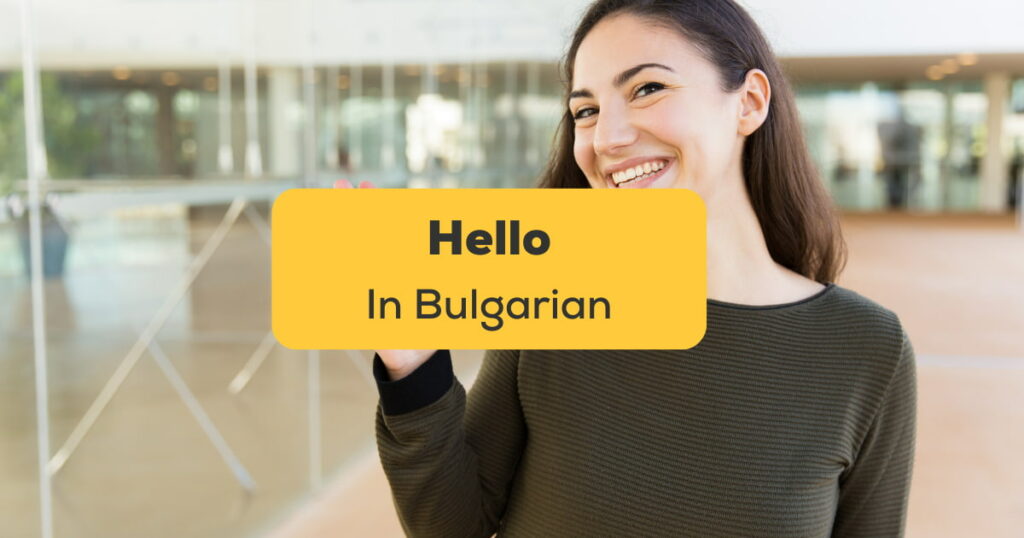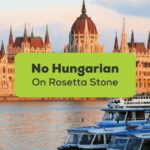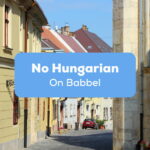Are you planning to learn Bulgarian? If so, this is definitely the right place for you to be! Most of the time, if you’re learning a new language and aim to be proficient in it, the first part of the target language you should learn is the fundamental way of saying hi or hello, which is a part of the Bulgarian greeting.
So, if you’re learning Bulgarian, greeting someone with a simple hello is the easiest way to start. In today’s blog, let’s learn some of the best ways to say hello in Bulgarian.
Say Hello In Bulgarian: Is It Necessary?
Before we get down to business, you might want to know the importance of greeting people in Bulgarian culture. Is it that significant? Won’t non-verbal cues such as smiling and nodding suffice? Like any other culture in the world, it’s always more appropriate and fitting for you to greet a native Bulgarian, especially if you’re planning to stay in Bulgaria for quite some time.
A short hello can definitely go a long way; you may look more appealing and approachable to the Bulgarians, gain reputation or recognition as well as establish connections with the local community. So today, let’s look at the ways of saying hello in Bulgarian.
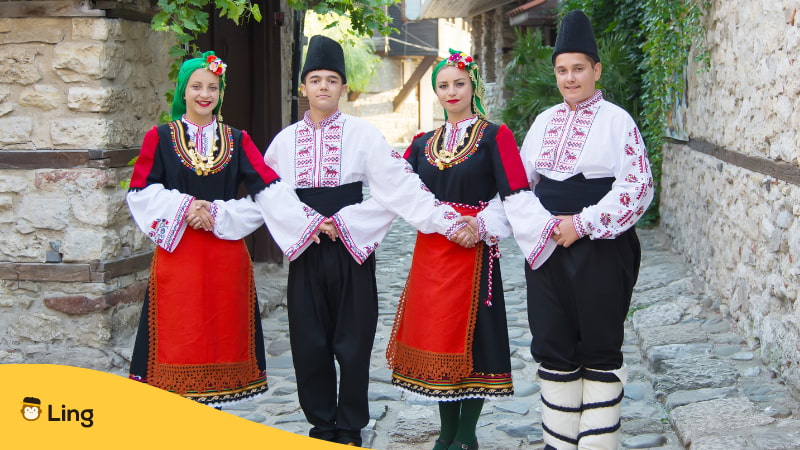
How Do You Say Hello In Bulgarian?
If you’re wondering how Bulgarians greet each other, you should know that there are several ways to say hello in Bulgarian. Let’s learn what the basic phrases in Bulgarian greetings are.
1) Добър ден (Dobar den) – Good day
Добър ден (dobar den) literally means ‘good day’ in the Bulgarian language. This phrase is formally used by the Bulgarians to greet each other during the daytime and is the most general way to say hello in Bulgarian. It’s the standard way of saying ‘hello’ to anyone, be it the entity you’re addressing. The greeting is only a person or a group of people.
2) Здрасти (Zdrasti) – Hi /Hello
If you’re greeting close friends, family, or the people you’re most comfortable with, you can use Здрасти to say ‘Hi.’ This word is rather informal and singular – you can utter this whenever greeting a person.
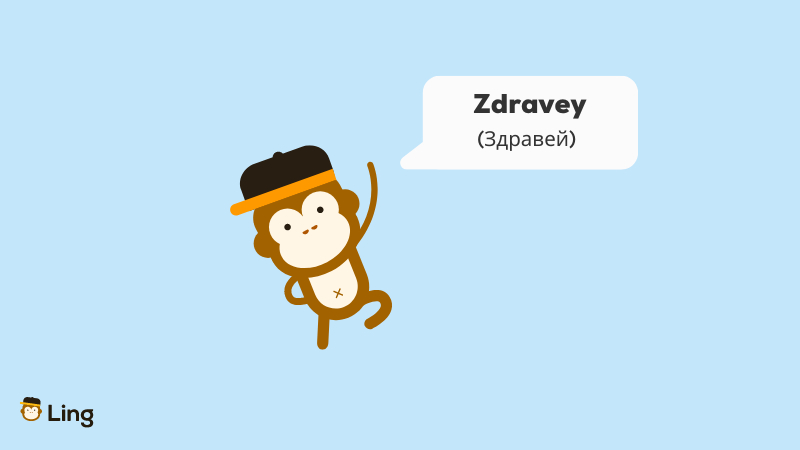
3) Здравей (Zdravey) – Hello
Similar to Здрасти, Здравей is used in an informal, singular context. There’s no distinct difference between the two so feel free to articulate whichever you want. However, this particular word has its plural counterpart. So, if you want to say ‘hello’ to your group of close friends, try saying Здравейте (zdraveyte) instead!
4) Хей! (Hey)
This one is universally used all around the globe and the Bulgarians use it too! Like English, this word is used in a casual manner to greet the people you’re closely familiar with.
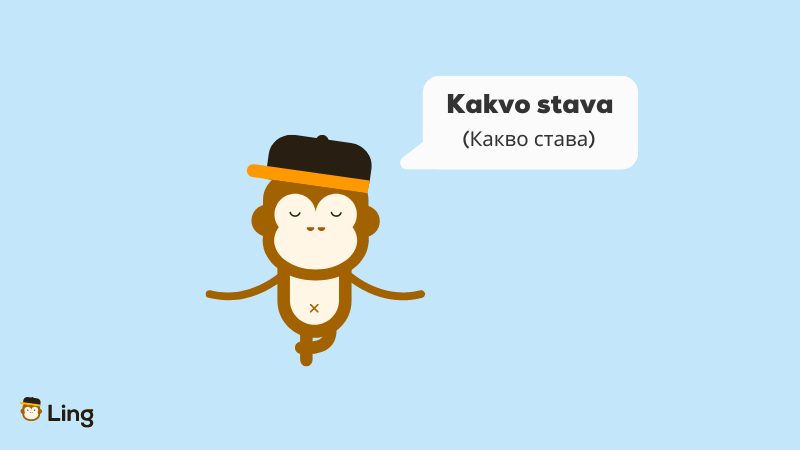
5) Какво става (Kakvo stava) – What’s up
If you’re tired of Здрасти (zdrasti) and Здравей (zdravey), try switching to the phrase ‘What’s up?’
6) Ехо (Eho!) – Yo!
You’d probably want to know what’s the Bulgarian word for ‘Yo!’ especially if you’re a millennial. In the Bulgarian language, it’s exo.
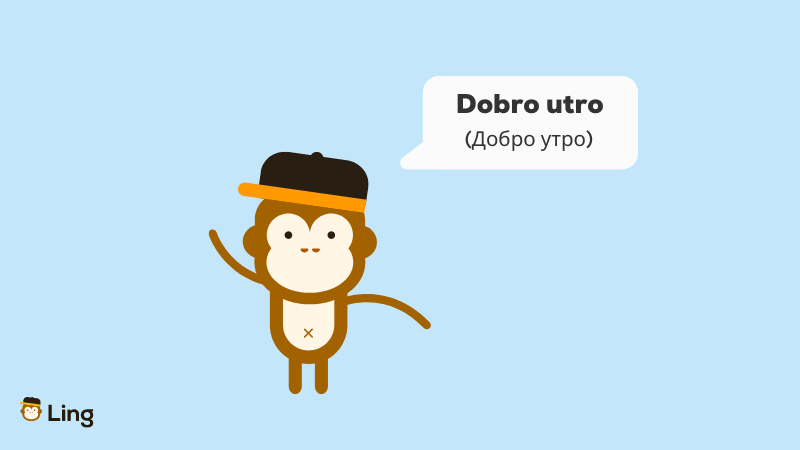
7) Добро утро (Dobro utro) – Good morning
To greet someone in the morning or evening, feel free to use this phrase as an equal substitute for ‘hi’ or ‘hello’. These Bulgarian words are very straightforward in meaning as Добро means ‘good’ and утро means ‘morning’. So, if you travel to Bulgaria and take a stroll around the country during the daytime, try to speak Bulgarian by saying good morning; dobro utro to the locals!
8) Добър вечер (Dobar vecher) – Good evening
As the day starts shifting you can start using this specific phrase, dobar vecher. To clarify, вечер (vecher) literally means ‘evening’ in Bulgarian. So, if you’re greeting your close friends by that time of the day, you can greet them by saying good evening; Добър вечер.
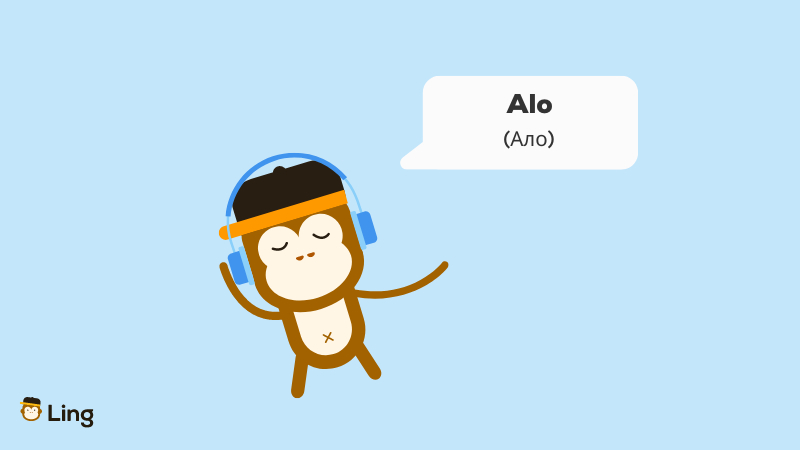
9) Ало (Alo) – Hello (on phone)
Ordering traditional meals in Bulgaria through the phone doesn’t need a very formal greeting just like in many other countries. When you’re calling or contacting someone from Bulgaria, do you know what you need to say to greet your interlocutor? In English, we usually say “Hi” or “Hello” and it is the same case in Bulgarian. The on-phone version for “Hello” in Bulgarian is Ало (Alo).
Other Common Greetings In Bulgarian
Now that we’ve seen the different words and phrases that we can use to say hello in Bulgarian, let’s see and learn some other ways of greeting the locals in Bulgaria. Before challenging yourself by stepping into unique Bulgarian words, you must also find out other common ways to express your greetings.
If Bulgarian is a second or foreign language to you, you need to get acquainted with all these expressions to elevate your vocabulary as well as language proficiency.

1) Отдавна не сме се виждали (Otdavna ne sme se vizhdali) – Long time no see
Upon addressing someone who you haven’t seen in a long time by saying hello in Bulgarian, you can say Отдавна не сме се виждали (Otdavna ne sme se vizhdali), which indicates “It’s a long time since I last saw you!”
2) Радвам се отново да те видя (Radvam se otnovo da te vidya) – It’s nice to see you again
Identical to the first one, this expression signifies the sense that you’re happy to finally see or meet someone after quite some time.
3) Как сте? (Kak ste?) – How are you?
Like English, there’s always a specific phrase to ask someone how are they doing. After you say hello in Bulgarian, you can include ‘how are you’. By doing so, you’re doing yourself a favor as people will regard you as thoughtful and polite. Как сте is often used in a formal setting, so don’t be shy and ask your Bulgarians superiors Как сте.
4) Как си? (Kak si?) – How are you?
This is the informal counterpart of Kak ste. Ask this question to people you’re most comfortable with – your Bulgarian friends, family members, and loved ones.
5) Как си напоследък? (Kak si naposledak?) – How have you been?
If you’re looking for an alternative to ‘how are you’, here’s a good one.
6) Как върви? (Kak varvi?) – How is it going?
This is another typical way to say hello in Bulgarian – you can alternate by asking how is it going?
7) Как вървят нещата? (Kak varvyat neshtata?) – How’s everything?
This is also another substitute for the ones before. Typically, this question is asked when we want to find out what state our interlocutor is in at that very moment.
8) Как върви деня ти? (Kak varvi denya ti?) – How’s your day?
This gesture is normally directed to the people that we’ve known for quite a time. It’s quite unusual to use this expression with strangers, but if you’re looking for new friends and acquaintances, why not?
9) Приятно ми е да те видя (Priyatno mi e da te vidya) – It’s nice to meet you
If you start making friends with a new person, who is, let’s say, a Bulgarian, you can give a sign that you appreciate the starting of the new friendship by saying “it’s nice to meet you!“. This can be a great way to not only strengthen your bond but to also sound lively when you say hello in Bulgarian to your new friend.
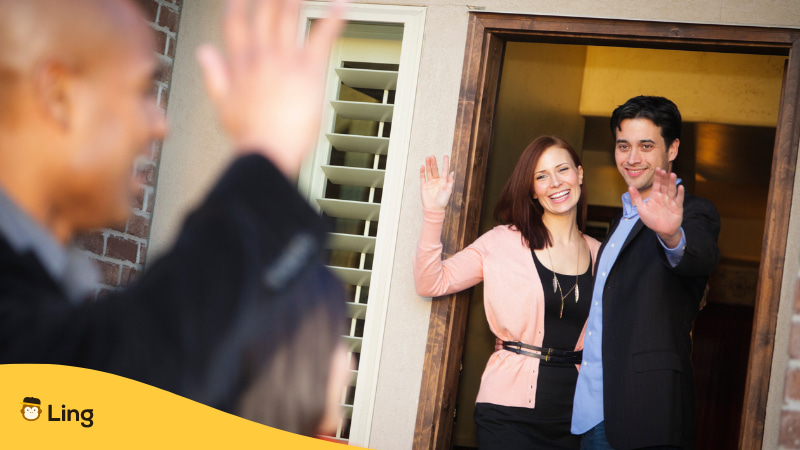
4 Amazing Ways On How To Say Goodbye In Bulgarian
As we’ve learned some important expressions in saying hello in Bulgarian, let’s learn what to say when we’re parting or leaving.
1) Довиждане (Dovijdane) – Good bye
When parting ways or leaving your workplace for good, you might want to say goodbye to your Bulgarian boss as a Bulgarian tradition. Довиждане (dovijdane) is the perfect word for you to use.
2) Чао (Čao) – Ciao! – Goodbye
The moment you want to part ways with your Bulgarian friends, you can just say ciao! It’s a word we all known as we casually it to our friends. Just so you know, this is one of the most spoken words by the Bulgarian people when they want to say goodbye. Of course, don’t forget to say thank you in Bulgarian too for having a nice day.
3) До скоро (Do skoro) – See u soon
If you’ll most likely encounter the person you’re parting with again or you’re planning to meet again sometime, you can say До скоро (do skoro), which means ‘see you soon’.
4) Дочуване (Dočuvane) – Bye (used on the phone)
The best way to end a conversation with your Bulgarian acquaintance is by saying Дочуване!
Learn Bulgarian Today With The Ling App!
Congratulations! Today, you have successfully learned how to say hello in Bulgarian, how to say goodbye in Bulgarian, and other common greetings in Bulgarian. Keep learning Bulgarian if you’re interested in this country’s rich culture and history. The Ling app has so much to offer – you can get resources such as alphabets, words, common sentences, vocabulary, grammar, spelling, pronunciation and so much more just for free! It’s an opportunity you must not waste, so start learning new languages through Ling App today!
If you’re starting with basic words and phrases, we suggest that you practice by creating simple sentences first. Memorize the Bulgarian vocabulary by downloading the Ling app on the Play Store or App Store now!
